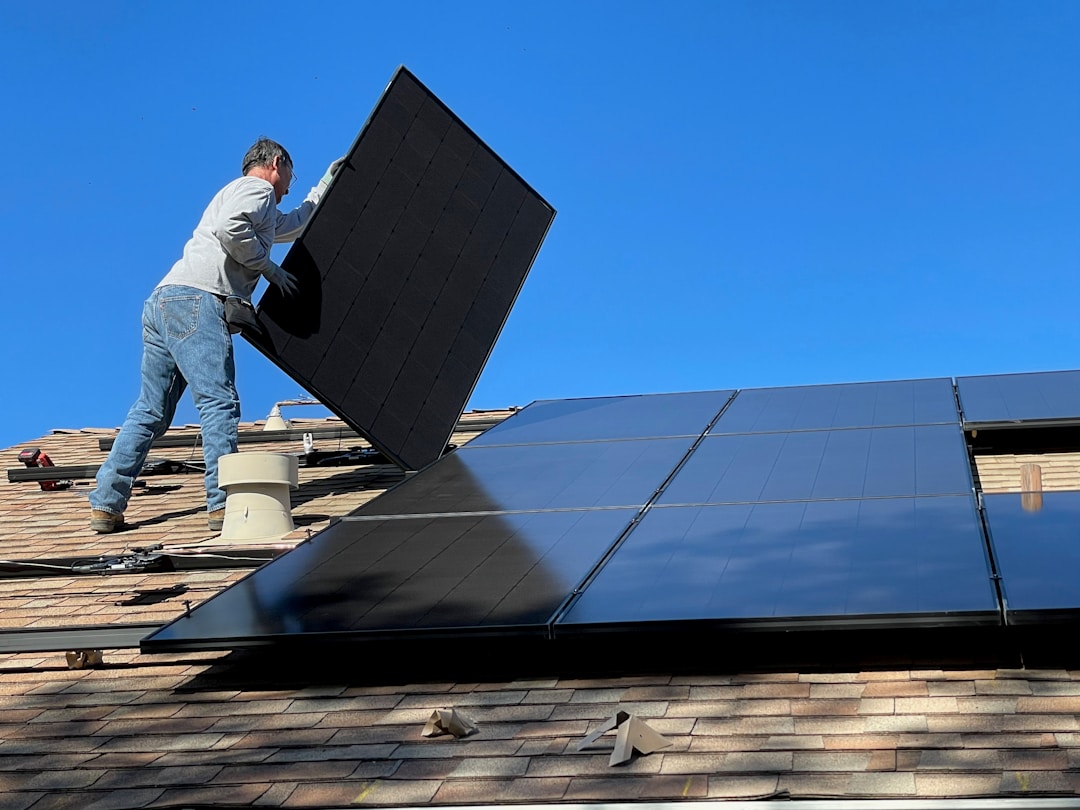Solar Solutions: Financing Your Switch to Solar
As the world shifts towards renewable energy sources, solar power has become a hot topic for environmentally conscious homeowners and businesses alike. Investing in solar panels can offer a cleaner, sustainable energy source while also providing the potential for significant financial savings over time. However, figuring out how to finance the initial investment in solar technology can be daunting for many. Below, we’ll explore the various financial benefits of going solar and the options available to help you make the jump to this green technology. Keep reading to understand how solar finance can empower your switch to solar energy.
Understanding the Financial Benefits of Going Solar

Embracing solar energy can lead to considerable cost savings on utility bills as you generate your own power and reduce your reliance on traditional electricity providers. The savings begin to accrue over time, adding to the appeal of solar energy as a long-term investment. With sufficient sunlight, solar panels can often produce more energy than a home or business requires, allowing for the possibility to sell excess energy back to the grid through net metering programs.
Aside from monthly savings, increasing the value of your property is another compelling financial incentive to go solar. Homes equipped with solar systems often have higher property values and attract buyers more quickly, signifying a lucrative potential return on investment if you decide to sell. The durability and low maintenance of solar panels further underscore the financial sensibility of this choice.
Moreover, accessing solar finance solutions can alleviate the upfront costs, making the transition to solar energy more accessible for a wider range of budgets. Flexible financing options mean that solar energy is no longer out of reach for the typical consumer, democratizing access to clean energy.
Comparing Solar Financing Options: Loans, Leases, and PPAs
Solar financing options can be broadly categorized into solar loans, leases, and power purchase agreements (PPAs). A solar loan allows you to finance the purchase and installation of your solar panels, much like a car loan. These loans can be secured or unsecured, with varying interest rates and terms designed to fit different financial situations, resulting in ownership of the solar system and the benefits that come with it.
On the other hand, solar leases and PPAs offer the ability to use solar energy without owning the equipment. With a lease, you pay a fixed monthly rate to rent the solar system, which is often less than your current electricity bill. A PPA is similar but involves paying for the solar power generated at a set per-kilowatt-hour rate, which is typically lower than local utility rates.
Going Solar: How to Qualify for Green Energy Funding
To gain access to green energy funding and finance solutions, potential solar system owners typically need to meet certain criteria. Creditworthiness is a key factor for most financing options, as lenders will review your credit score and financial history. A strong credit score can lead to better loan terms, while a less favorable credit history may require exploring alternative financing options or seeking out special programs designed for lower credit scores.
In addition to credit requirements, the condition of your property plays a role in qualifying for solar funding. For instance, an assessment of your roof’s ability to support solar panels or the availability of space for a ground-mounted system may be necessary. Properties best suited to solar installations will naturally have an easier time securing funding.
Fulfilling these qualifications is typically the first step in embarking on the journey toward solar energy adoption. Consulting with solar financing experts can simplify this process, clarifying any complexities and guiding you through the prerequisites for securing funding.
Smart Strategies for Solar Investment

Maximizing return on investment (ROI) is a prime consideration for any solar energy project. Smart strategies for solar investment start with performing a thorough cost-benefit analysis, considering all potential expenses and revenues associated with your solar system over its expected lifespan. Evaluating long-term savings on energy bills against upfront costs gives a realistic view of the investment’s profitability.
It’s equally important to choose high-quality solar panels and components that offer better efficiency and longevity. While they may come with a higher initial cost, superior products can provide more reliable performance and extended duration, minimizing the likelihood of unexpected maintenance issues that can diminish ROI.
Overall, the switch to solar energy offers a compelling mix of environmental and financial benefits. By understanding the various financing options, incentives, and smart investment strategies, you can make an informed decision that not only supports cleaner energy but also bodes well for your wallet. Altogether, embracing solar is a bright investment in a sustainable future.



